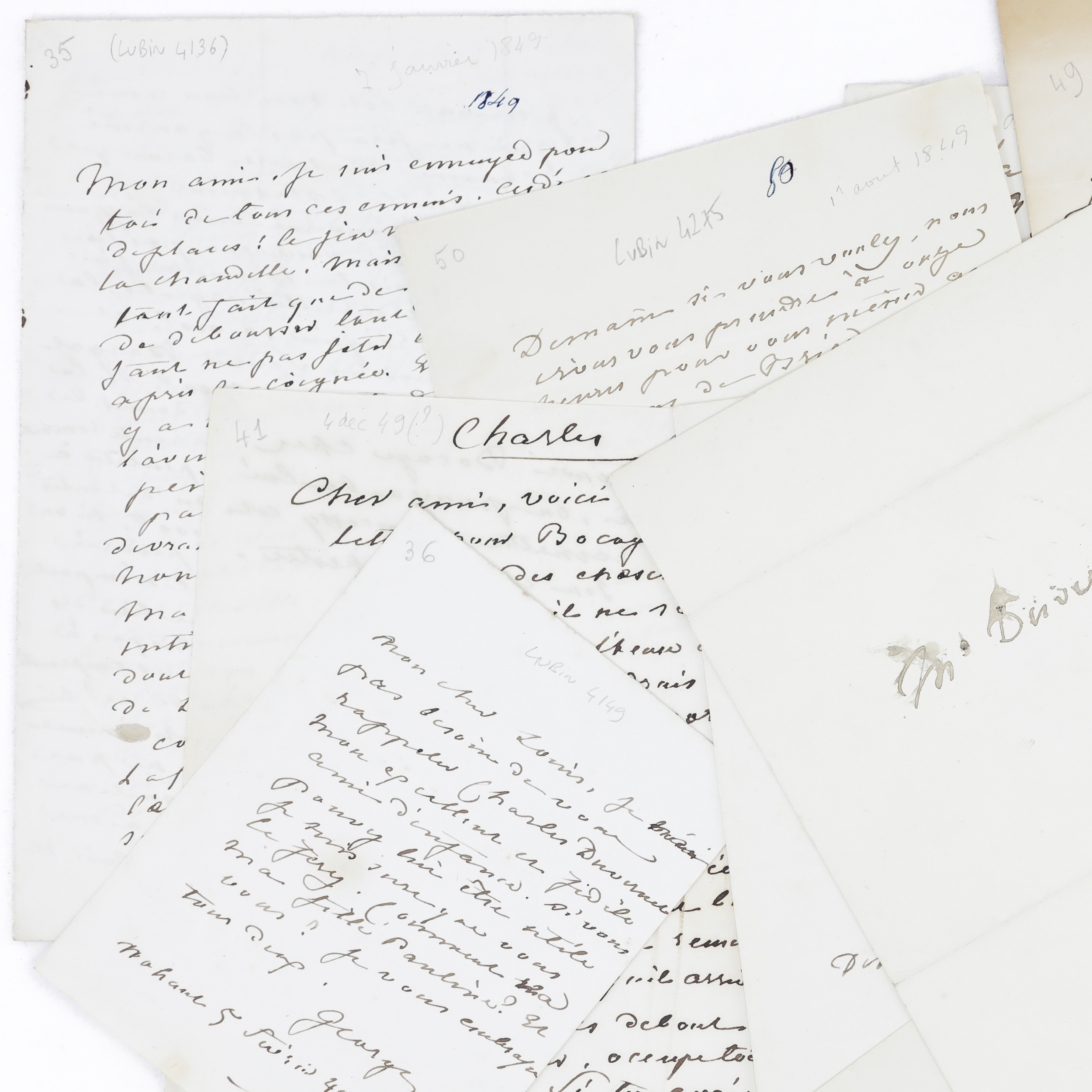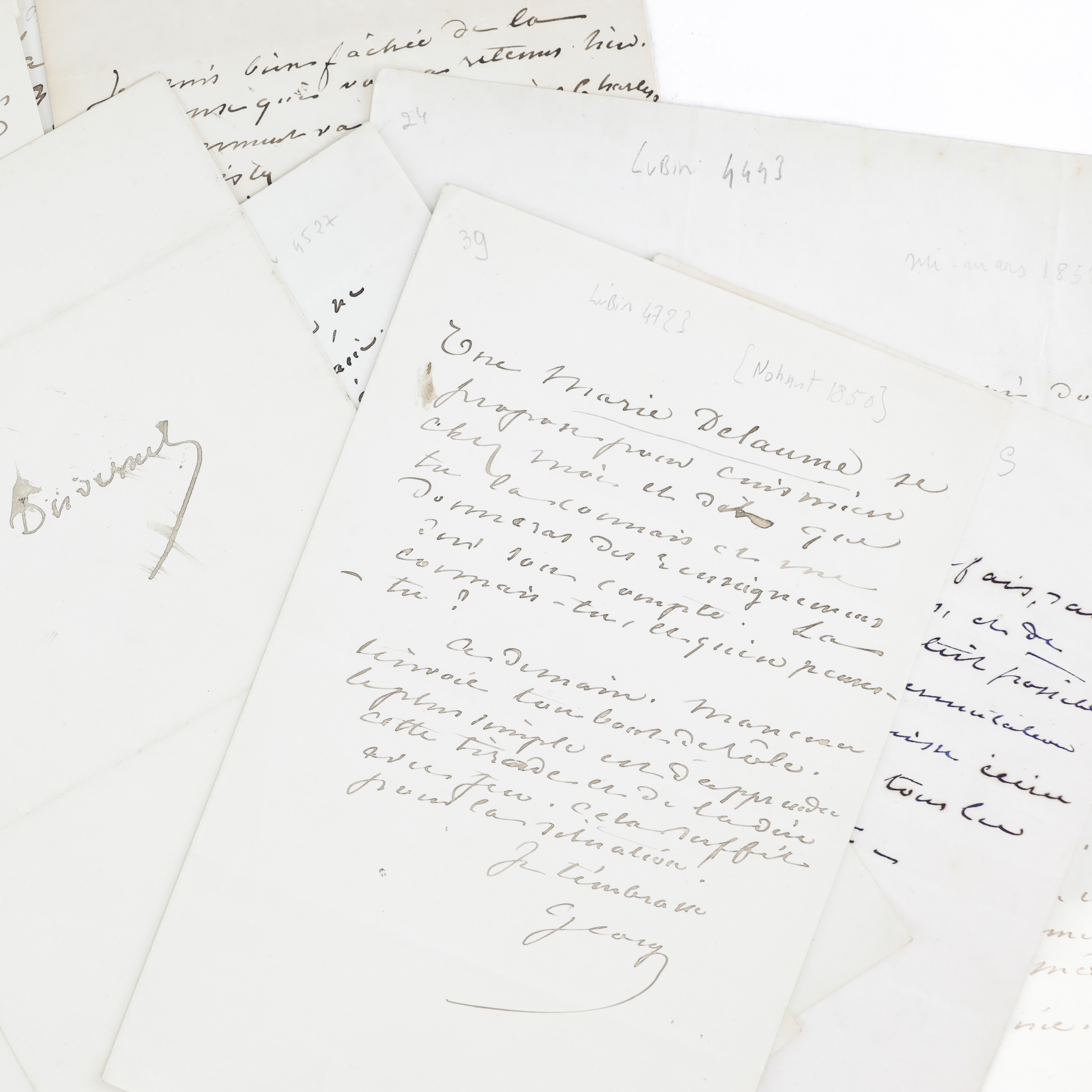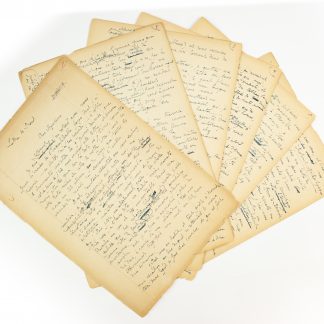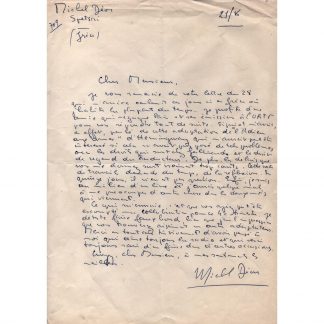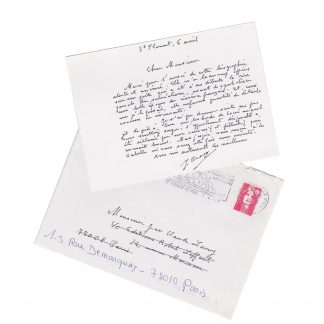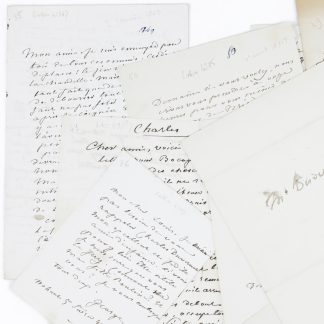Description
11 AUTOGRAPH LETTERS SIGNED and 2 AUTOGRAPH LETTERS written in Nohant or Paris in 1849 and 1850. Beautiful set to his youthful friend Charles Duvernet and his wife Eugénie, two important figures in the small theatre of Nohant.
Charles Benoist Robin-Duvernet (1807-1874) had known George Sand since childhood: their fathers had both played music and acted in the salon. Sharing Sand's literary ambitions and political ideas, Duvernet was one of the founders of L'Éclaireur de l'Indrea Republican-leaning newspaper to which the author of La Mare au Diable contributed numerous articles (I'm sending you a letter about theEclaireur" [Nohant, mid-March (?) 1850]). Both suffered from the repression of progressive ideas that followed the 1849 legislative elections. In January of that year, however, an optimistic Sand wrote to Duvernet: "Reactionaries won't always have the upper hand."
Sand recalls her frequent visits to Duvernet, who lived in summer at the Château de Coudray, near Nohant:
Tomorrow, if you like, we'll pick you up at eleven and take you to Brice's ponds. We'll take lunch there; don't worry about anything except getting your cabriolet ready. [Nohant, 1st August 1849]
She also mentions the Reignier debt, which is causing her serious financial problems, while Duvernet is trying to repay the loans he took out to guarantee George Sand's niece Augustine Bertholdi :
For your information on the Bertholdi affair, here is my position, which I must submit. In terms of urgent debts, I owe the Widow Reignier 10,000 f. And in the month of February Bargat and Maublanc 6,000 f. If the widow Reignier wants to give me time to wait for the annuity to rise a little, I may be able to make 18 or 19,000 f. from my annuity coupon of 1,000 f., but if I am rushed too much I will lose a lot. But it doesn't matter. I'll sell to get out of debt. [Nohant, 9 January 1849]
The abundant correspondence between Sand and Duvernet is particularly rich from 1846 onwards: at the instigation of George Sand's son Maurice, a small theatre with around fifty seats had been set up in their house in Nohant. To stage her "house plays", experiments with her Parisian creations, George Sand called on her family and friends, including Charles Duvernet, who had set up a troupe of amateur actors in La Châtre. These letters provide an amusing account of their collaboration:
This is a superb play. Read it carefully, copy your part and that of your friends. of Eugénie, indicating in a few words the scenes in between, and send me my script back this evening. [...] Demand that Eugénie study her part because on the last day she and Laure have no time to read it. [Nohant, early November 1849]
Eugénie, who married Charles Duvernet in 1832, was also involved:
My darling, don't come late tomorrow. Bring an amazon skirt for yourself and to play the giant, the longest you can get.
We play Meneghino in a modern suit. You'd need a sort of grisette suit that's not too clean, as Madame Truccagnin's interior is a hovel. We're short of bonnets here. Bring one, and a summer dress, flashy and a bit tight, if you have that to hand. [Nohant, 1st June 1850]Manceau sends you your part, the easiest thing is to learn this print and say it with fire. That is enough for the situation. [Nohant, 1850].
An autograph letter signed "George" is enclosed.5 February 1849, to Louis Viardot, recommending Charles Duvernet, his "best friend", to him.an excellent and faithful childhood friend"
George Sand, Correspondance, texts collected, classified and annotated by Georges Lubin, vol. IX: 4132, 4136, 4149, 4272, 4275, 4330, 4373, 4390, 4443, 4527, 4576, 4722, 4723, 4729.

